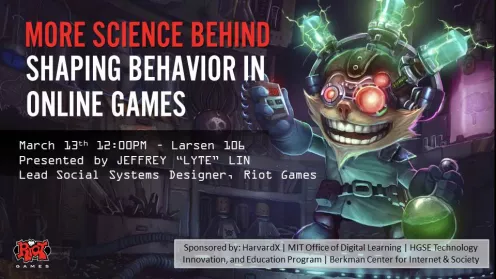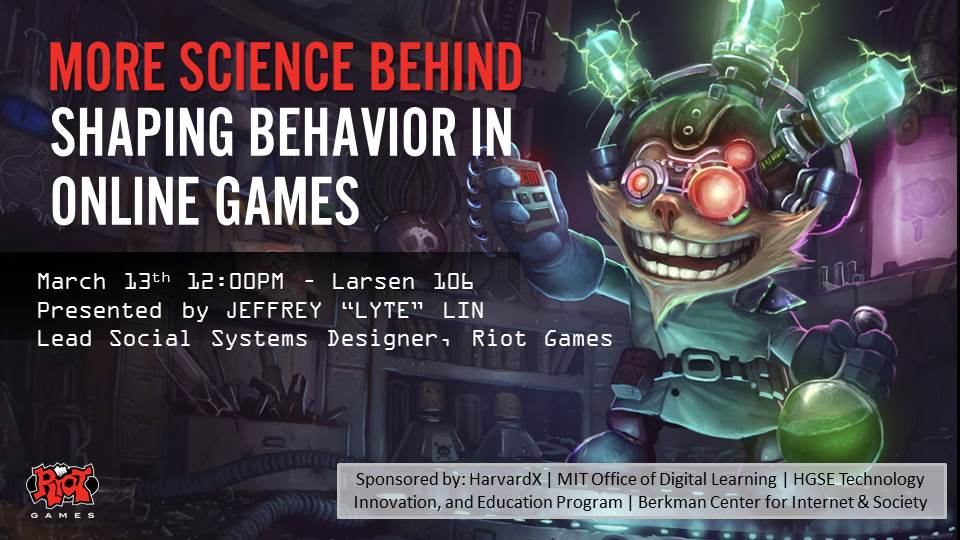
More Science Behind Shaping Behaviors in Online Games
Friday, March 13, 12:00PM
Larsen 106, Harvard Graduate School of Education
Sponsored by HarvardX, MIT Office of Digital Learning, HGSE Technology, Innovation, and Education Program, and the Berkman Center
From Jeffrey:
When online communities first emerged on the internet, they developed without structure--there were no consequences so users “grew up” thinking that certain behaviors (such as being racist, homophobic or sexist) were an accepted norm online. As society spends more and more of their time online, we believe that the next evolution of online society is to give the online citizen the tools to build and shape their own community--to believe in users and players and their ability to do the right thing.
To show the impact of this philosophy, we’ll start by using social network analysis to map out how player behavior (both positive and negative) spreads in League of Legends, an online game with over 67 million players a month. By combining the latest research techniques from social and cognitive psychology with machine learning and game design, you can reduce online negative behaviors by multiple factors, reset and re-create online cultural norms and create an online future that users and players can be proud of. Critically, these systems are all driven directly by feedback and contributions from the users and players of League of Legends.
Video from 2013 Talk: Play Nice: The Science of Player Behavior in Online Games
Bio:
Jeffrey "Lyte" Lin is lead designer of social systems and is responsible for helping League of Legends have the most sportsmanlike community in online games. "Professor Doctor Lyte" and his team challenge the convention that online communities are and always will be toxic environments; in fact, some of the team's latest work suggests that the vast majority of online communities are positive or neutral. He runs experiments and data analyses, translating the results and learnings into viable game features that enhance engagement while amplifying the sportsmanlike behavior that already exists in the community. Before Riot, Jeffrey was an experimental psychologist at Valve Software and received his Ph.D. in cognitive neuroscience from the University of Washington with Dr. Geoffrey Boynton and Dr. Scott Murray.

